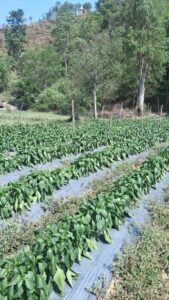Over the past few years, Himachal Pradesh has witnessed a remarkable shift toward natural farming, with a growing number of farmers and horticulturists embracing chemical-free agricultural practices. As of now, over 2.23 lakh farmers across nearly all panchayats in the state have adopted natural farming methods, either fully or partially.
This transformation has been largely driven by proactive government initiatives aimed at strengthening the rural economy and empowering farmers. These initiatives include promoting sustainable farming practices, ensuring fair prices for produce, providing quality seeds, enhancing irrigation infrastructure, offering crop insurance, and supporting agricultural research and training.
In the 2025–26 Budget, CM Sukhu reaffirmed the government’s commitment to reinforcing the agrarian economy. A landmark move was the introduction of Minimum Support Prices (MSPs) for crops grown through natural farming. Starting with maize at Rs. 30 per kilogram in 2024, the MSP was increased to Rs. 40 per kilogram in 2025–26. So far, approximately 400 metric tons of maize have been procured from 1,509 farmers. Wheat is also being procured at an MSP of Rs. 60 per kilogram.
Building on the encouraging response, the state has now announced an MSP of Rs. 90 per kilogram for raw turmeric cultivated through natural farming methods. This turmeric will be marketed under the new brand ‘Himachal Haldi’, aimed at expanding market access and increasing farmer profits. The government has set an ambitious target to connect 9.61 lakh farmers to natural farming in a phased manner.
To support the marketing of natural farm produce, infrastructure is being developed in 10 market yards. Under the Prakritik Kheti Khushal Yojana, Rs. 27.60 crore was spent during 2023–24 and 2024–25, with an additional Rs. 7.28 crore allocated for the current financial year. Oversight is being provided by a high-level committee chaired by the CM and a dedicated task force led by the Chief Secretary.
Further incentives are being offered to farmers adopting natural farming techniques. These include subsidies of Rs. 750 per drum (up to three drums), Rs. 8,000 for constructing concrete cow sheds and urine collection pits, and a 50% subsidy (up to Rs. 25,000) for purchasing indigenous cows, along with Rs. 5,000 for transportation.
A standout feature of natural farming is its zero-budget approach, which significantly reduces input costs while improving crop quality, soil fertility, and environmental sustainability. This not only raises farmers’ incomes but also enhances their overall quality of life.
Himachal Pradesh’s ongoing push toward natural farming marks a significant step toward building a sustainable, self-reliant, and prosperous rural economy—benefiting both farmers and the broader community.


